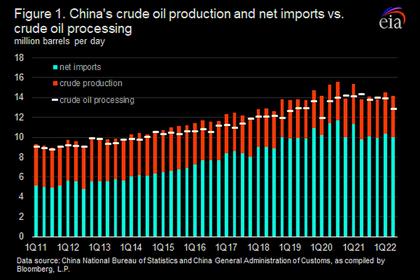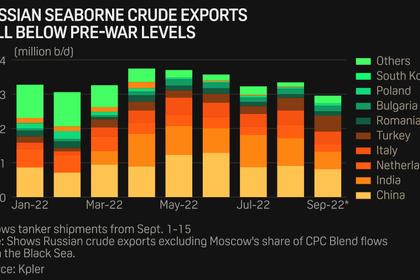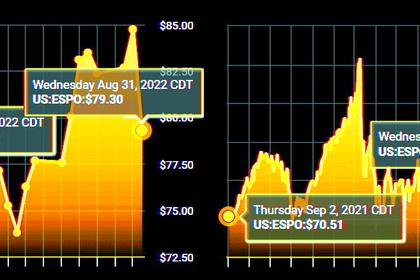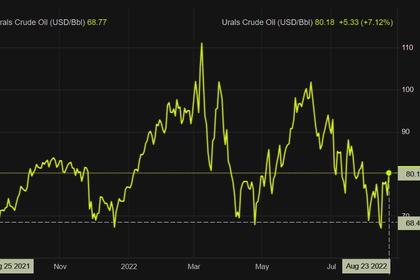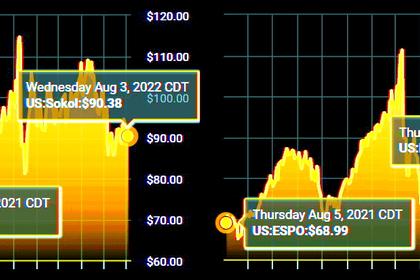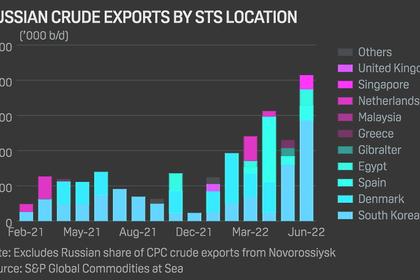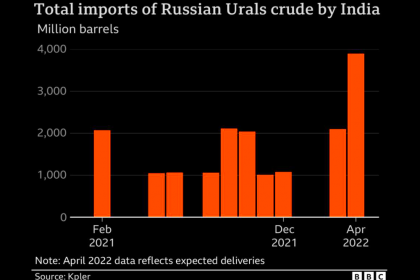
INDONESIA NEED RUSSIAN OIL
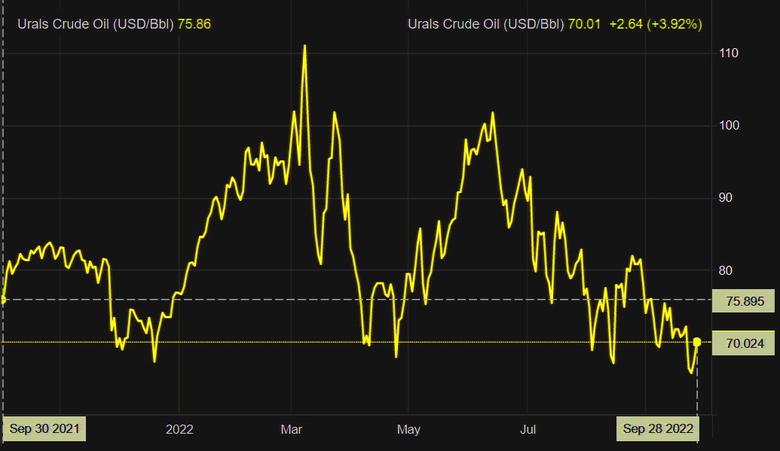
PLATTS- 29 Sep 2022 - Prudent feedstock selection and crude slate adjustments are crucial operational strategies for Southeast Asian refiners in times of volatile oil prices, raising the case for Indonesia to assess the possibility of processing cheap Russian crude as well as stepping up efforts to upgrade its facilities to improve overall refining economics, industry executives said.
The Southeast Asian refining industry has been battling various challenges including the volatile oil prices and shift in trading dynamics due to major geopolitical issues, said Kadek Ambara Jaya, director of infrastructure projects at state-run Indonesian refiner Pertamina,during a panel discussion at the S&P Global Commodity Insights Asia Pacific Petroleum Conference in Singapore Sept. 28.
As a result, Pertamina strives to enhance its business and refining optimization process and in order to achieve that, crude selection, feedstock processing and logistics are the key areas to focus on, Ambara Jaya added.
Southeast Asian refineries in general are less sophisticated, making them much more vulnerable to market challenges and price volatility than Northeast Asian and South Asian counterparts. They haven't been investing enough to upgrade their facilities and improve logistics to enhance overall operational flexibility, said Sri Paravaikkarasu, director of market analysis at Phillips 66.
"These are some of the challenges [for Southeast Asian refineries] and these also lead to high overall operational costs," she added.
Pertamina's interest in Russian crude
Ambara Jaya indicated that with currency also starting to play a role in Asia's rising crude procurement costs amid a very strong US dollar, the search for the most economical feedstock procurement options has opened up Pertamina's interest in Russian crude.
Although Pertamina remains cautious and the company declined to make official comments on any concrete plans to purchase Russian crude going forward, Ambara Jaya said that the state-run refiner finds several Russian crude grades to be suitable feedstocks.
The main question is whether Russian crude grades would fit in line with Pertamina's linear programming models and product slate.
Pertamina has tested a number of Russian crude grades and specifications such as sulfur levels, metal content and contaminants were very much in line with its current feedstock blend and the product yields for the Russian grades match Pertamina's refinery configuration, according to Ambara Jaya.
He declined to comment on the specific Russian crude grades that Pertamina had tested due to the sensitive nature of refining business models and corporate trading relationships, as well as international diplomacy.
"As far as the refinery configuration is concerned, we would have no problem [processing Russian crude grades]," he said.
Having seen Indian refiners actively importing cheap Russian crude, Pertamina is also trying to take the opportunity and explore the possibility of importing Russian crude. Pertamina plans to conduct lots of discussions with top government officials over this matter, Ambara Jaya added.
Refinery upgrades
Unlike the highly sophisticated refineries in South Korea, Japan and China, most Southeast Asian plants feed largely on light sweet crudes that are typically more expensive than heavy density high sulfur sour crudes.
The lack of ability among Indonesian refineries to crack sour crudes puts them in a difficult spot, especially when the sweet-sour crude price spread widens, Asian crude and condensate traders said following the APPEC conference Sept. 29.
The Brent-Dubai Exchange of Futures for Swaps, or EFS, spread -- a key indicator of sweet crude Brent's premium to the Middle Eastern sour crude benchmark -- averaged $8.15/b in 2022 as of Sept. 29, compared with an average of $3.18/b in 2021, 4 cents/b in 2020 and $2.38/b in 2019, data from S&P Global Commodity Insights showed.
Ambara Jaya indicated that Pertamina is keen to change the mechanism of crude processing and feedstock crude procurement as 90% of its feedstock cracking and refining operational costs are derived purely from the cost of the crude.
Indonesia's slow but gradual refinery upgradation works are starting to bear fruit, with Pertamina enhancing its ability to process more sour crude in the past few years.
Indonesia imported about 32.25 million barrels from Saudi Arabia and the UAE in 2021 and received 14.7 million barrels from major Middle Eastern producers in first-half 2022, latest data from Statistics Indonesia showed.
Pertamina signed a joint venture development agreement with Saudi Aramco in 2016 to commit $5 billion in investment to upgrade and expand the Cilacap refinery in Central Java. The expansion was aimed at boosting the refinery's crude processing capacity to 400,000 b/d from 348,000 b/d.
The joint venture with Saudi Aramco was cancelled in 2020 as global crude prices declined following the initial outbreak of COVID-19. Pertamina had said it would develop its Cilacap refinery independently.
-----
Earlier:
